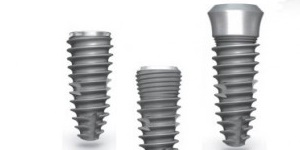
داروهای دارای اهمیت در دندانپزشکی ایمپلنت
2015-09-07
داروهای ضد انعقاد
2015-09-07The medical evaluation remains of paramount importance in implant dentistry, perhaps more so than in other disciplines of dentistry.2 Implant treatment is primarily a surgical, prosthetic, and maintenance discipline for an older segment of the population. The need for implant-related treatment increases with the age of the patient; as a result, the implant dentist treats more elderly patients than do other specialists in dentistry
Management of Elderly Implant Patients
The elderly patient’s compliance is often decreased. Aging patients have a tendency to forget to take medications or to mistake dosage and frequency. Because of impaired hearing and vision, they may become confused more easily. Many follow an inadequate diet that can impair their condition and slow healing after surgery
Even healthy older implant candidates (older than 60 years) should be considered as patients with mild systemic disease, just because of their age.21 As a result of a decrease in physiologic adaptability, the aged patient has less reserve to react to stress. If the limits of homeostatic reserve are reached, the patient can reach a critical condition.22 The elderly patient can follow regular implant therapy provided a typical stress reduction protocol is implemented. Monitoring of vital signs, modified dosage of medications, and special care during sedation because of an increased sensitivity to CNS depressants are indicated. An increased dosage of antibiotics compensates for the less competent immune system and the increased susceptibility to viral and bacterial diseases. An increased dosage of liposoluble drugs is also suggested. Elderly patients are reportedly less sensitive to pain, so a reduced dosage of narcotic analgesics is recommended, especially because gastric motility is reduced in these patients. The doctor should be aware of the eventual adverse drug reactions to the medications already taken by these patients when combined with those later prescribed for implant surgical procedures






